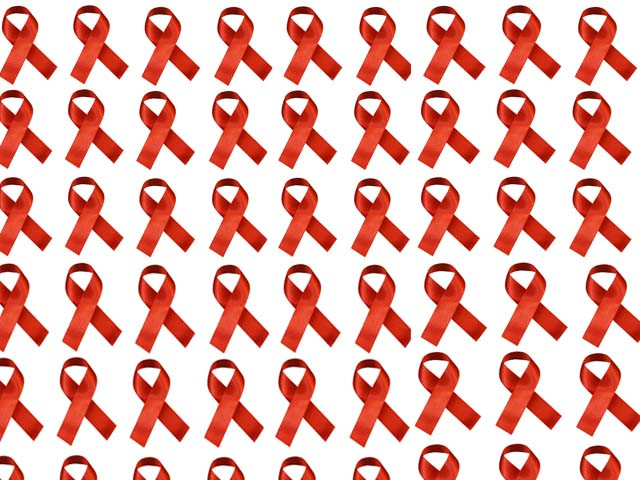No refuge for women with AIDS
Legislation required to ensure that men contracting marriage are HIV free.

“Love is blind’: the truth of this old adage dawned on me when I was diagnosed HIV positive,”said Anee*, 23, a sex worker.
It all started on that fateful day when happy go lucky Anee, who was living with her parents in Gujar Khan, met a tall handsome man at a shop and fell in love with him. They started meeting and one thing led to another. Love became physical, Anee told The Express Tribune in a halting voice.
“I could not say no as I was deeply in love with him. After a few months he asked me to marry him. Nothing could be sweeter. This was the logical thing to do. I had absolute trust in him,” she added. “My parents who were unaware of our relationship could not have agreed to this proposal. So I left home and went to Lahore with him. The wedding day kept postponing on one or the other pretext,” Anee said.
After a couple of months of this life he took Anee to a woman, Aunty Shazia, and left her in her charge saying he had to settle some family business in Karachi. Anee got the biggest shock of her life when she found her lover had dumped her in a running brothel. He was a pimp and his job was to procure girls like her for Madam Shazia. Anee was forced into the business. But this shame did not last long when she learned she was two months pregnant.
“I cannot forget the moment when during pre-natal checkup I was diagnosed HIV positive,” said Anee and burst into tears.
When the madam learned about her disease, she kicked her out.
“I had no one to go to. I was on the streets living from day to day on God’s mercy.” She gave birth to a baby boy who was also HIV positive. “My baby and I are living a life worst than a street dog’s and I do not have the courage to go to the hospital for treatment as I am ashamed of myself,” said Anee.
This is not the story of just one Anee. Many innocent women have contracted the AIDS virus after marrying HIV positive men.
According to Dr Rizwan Qazi, general physician and director of HIV/AIDS centre at the Pakistan Institute of Medical Sciences (Pims), there was no legislation in the country to ensure that men contracting marriage were HIV free. Women cannot ask their future husband to take a test for HIV/ AIDS, Dr Qazi told the Express Tribune. “I have treated many women who got this disease from husbands who had stayed abroad before coming to get married in Pakistan,” he added.
Sharing the profile of one of his patients he told about a man from South Africa who was HIV positive and was on death bed. After treatment he was a little better. “I was shocked when one day he came to me and gave me his wedding invitation,” said Dr Qazi. “With the support of other non-government organisations (NGOs) we tried to stop him but he changed his house and cell number. We do not know where he is now,” Dr Qazi said.
Bibi Zahida, 33, and her husband Abdul Ghafar, 45, belong to Pishin and both are HIV carriers. They got married 17 years back and have five children. Zahida is under treatment at Pims.
“My wife became HIV positive when she got blood transfusion during abortion,” claimed Ghafar. He was of the view that he got infected because of her. “We have a joint family system and none of our relatives knows about our disease. They will leave us if they knew about our condition,” he said.
In Pakistan, HIV/AIDS has been introduced like, ‘a deadly disease and illicit relationship is considered to be its root cause. This really discourages and embarrasses the patients and they avoid taking its treatment, said Dr Qazi.
“A draft of the first-ever HIV/ AIDS policy has been formulated by the National AIDS Control Programme (NACP) and has been forwarded to the Ministry of Health for approval,” said Dr Sajid Ahmed, manager, NACP.
Talking to the Express Tribune, he said the policy will contain all those measures that will help to ward off this disease from the country.
He agreed that immigrants with HIV positive were one of the major causes of its spread in the county but nothing could be done as it would affect international relationships. “The Ministry of Health is giving awareness trainings to the sex workers and transvestites to have save sex practices,” said Dr Ahmed.
Published in The Express Tribune, December 1st, 2010.



















COMMENTS
Comments are moderated and generally will be posted if they are on-topic and not abusive.
For more information, please see our Comments FAQ